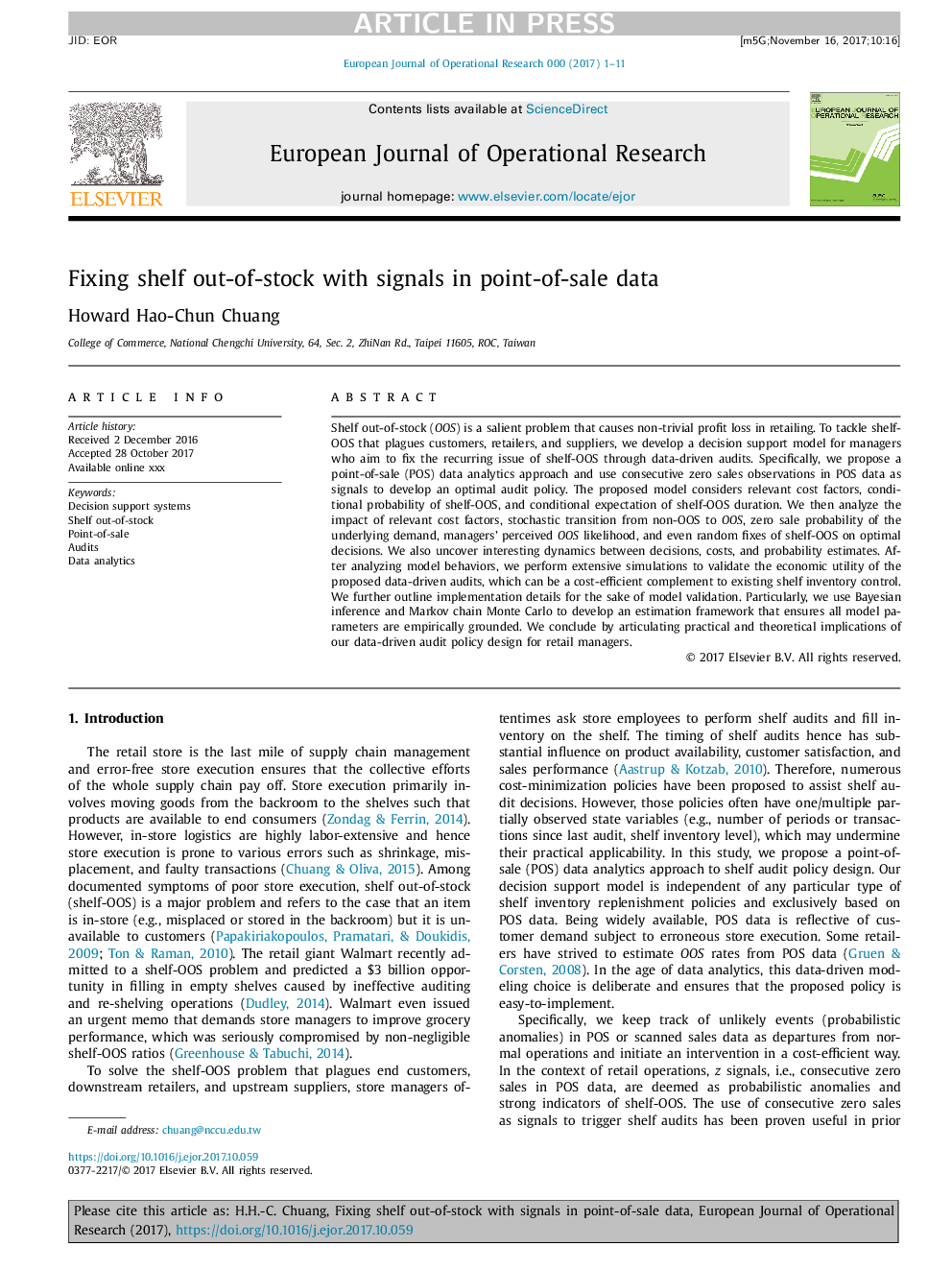| Article ID | Journal | Published Year | Pages | File Type |
|---|---|---|---|---|
| 6894526 | European Journal of Operational Research | 2018 | 11 Pages |
Abstract
Shelf out-of-stock (OOS) is a salient problem that causes non-trivial profit loss in retailing. To tackle shelf-OOS that plagues customers, retailers, and suppliers, we develop a decision support model for managers who aim to fix the recurring issue of shelf-OOS through data-driven audits. Specifically, we propose a point-of-sale (POS) data analytics approach and use consecutive zero sales observations in POS data as signals to develop an optimal audit policy. The proposed model considers relevant cost factors, conditional probability of shelf-OOS, and conditional expectation of shelf-OOS duration. We then analyze the impact of relevant cost factors, stochastic transition from non-OOS to OOS, zero sale probability of the underlying demand, managers' perceived OOS likelihood, and even random fixes of shelf-OOS on optimal decisions. We also uncover interesting dynamics between decisions, costs, and probability estimates. After analyzing model behaviors, we perform extensive simulations to validate the economic utility of the proposed data-driven audits, which can be a cost-efficient complement to existing shelf inventory control. We further outline implementation details for the sake of model validation. Particularly, we use Bayesian inference and Markov chain Monte Carlo to develop an estimation framework that ensures all model parameters are empirically grounded. We conclude by articulating practical and theoretical implications of our data-driven audit policy design for retail managers.
Related Topics
Physical Sciences and Engineering
Computer Science
Computer Science (General)
Authors
Chuang Howard Hao-Chun,
